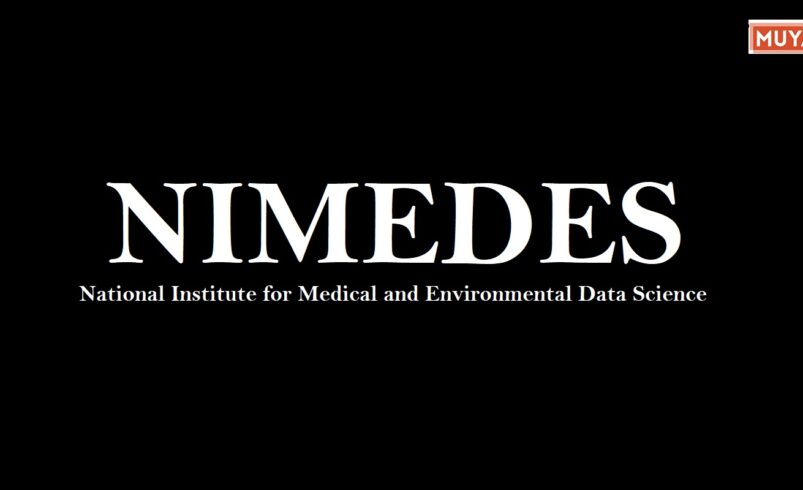n a world where healthcare and environmental challenges are becoming increasingly complex, the need for data-driven solutions has never been more critical. One such initiative at the forefront of this revolution is NIMEDES the National Institute for Medical and Environmental Data Science.
Imagine a medical research lab where doctors and data scientists are working side by side, not just interpreting data. But making predictions that could save lives, reduce environmental hazards, and change the course of human health on a global scale. This is the essence of what NIMEDES aims to accomplish.
What is NIMEDES?
At its core, NIMEDES stands for National Institute for Medical and Environmental Data Science. A research organization committed to advancing the understanding and application of data science in two critical fields: healthcare and environmental science.
NIMEDES focuses on using large datasets and sophisticated data analytics tools to provide insights. That can lead to improved health outcomes, better disease prevention strategies, and more effective responses to environmental challenges.
The Dual Focus of NIMEDES
- Medical Data Science: NIMEDES applies data science to health and medical research. It collects, analyzes, and interprets health-related data, from patient information to global disease trends, to offer actionable insights that can enhance diagnosis, treatment, and public health strategies.
- Environmental Data Science: The institute also uses data science to explore environmental factors—such as air quality, water pollution, and climate change—that impact human health. By analyzing these variables, National Institute for Medical and Environmental Data Science aims to provide solutions to mitigate the negative effects of environmental degradation on public health.
The Role of Data Science in Modern Medicine
The role of data science in healthcare has grown exponentially in recent years, with National Institute for Medical and Environmental Data Science playing a pivotal role in this transformation. The ability to collect, analyze, and interpret massive amounts of health data has revolutionized medical research, enabling more accurate diagnoses, targeted treatments, and predictive health analytics.
Environmental Data Science: A Global Imperative
The environment and public health are inextricably linked. Environmental degradation from pollution to climate change directly affects human health, and NIMEDES plays a significant role in using data science to understand and mitigate these effects.
1. Climate Change and Health
Climate change is perhaps the most significant environmental challenge of the 21st century, and its impact on health is profound. National Institute for Medical and Environmental Data Science uses environmental data such as temperature fluctuations, air quality, and rainfall patterns to study how climate change is affecting disease patterns.
For example, rising temperatures can exacerbate the spread of vector-borne diseases like malaria and dengue. By analyzing climate data, Helps predict and prevent the spread of these diseases, particularly in vulnerable regions.
2. Pollution and Respiratory Diseases
Air pollution, particularly fine particulate matter (PM2.5), is a major environmental health risk, contributing to respiratory diseases, cardiovascular conditions, and even premature death. NIMEDES collects air quality data from sensors around the world, enabling scientists to analyze. The correlation between pollution levels and health outcomes.
Case Studies: NIMEDES in Action
Case Study 1: Disease Outbreak Prediction in Sub-Saharan Africa
In 2019, NIMEDES partnered with the World Health Organization (WHO). To develop a predictive model for disease outbreaks in Sub-Saharan Africa. Using a combination of environmental data (such as rainfall and temperature) and historical disease data. NIMEDES was able to accurately predict outbreaks of diseases like malaria and cholera.
Case Study 2: Air Quality Monitoring in Urban Centers
In collaboration with local governments, NIMEDES deployed a network of air quality sensors in several major cities. Including New York, London, and Delhi by continuously monitoring air pollution levels. The institute was able to provide real-time data to local authorities, enabling them to take immediate action when pollution levels became hazardous.
Pros and Cons of NIMEDES’s Approach
Pros:
- Interdisciplinary Collaboration: NIMEDES brings together experts from various fields, fostering innovation and providing a holistic approach to solving global health and environmental problems.
- Data-Driven Solutions: By leveraging big data and predictive analytics, NIMEDES ensures that decisions are based on concrete evidence, improving the effectiveness of interventions.
- Global Impact: NIMEDES’ work has had a significant impact on global health and environmental policies, improving the lives of millions worldwide.
Cons:
- Data Privacy Concerns: Collecting and analyzing sensitive health data raises concerns about privacy and security. NIMEDES must ensure that strict protocols are in place to protect patient information.
- High Costs: The sophisticated technologies and research involved in NIMEDES projects can be expensive, and not all regions have access to these resources.
Conclusion: NIMEDES and the Future of Data Science
The power of data science in addressing two of the world’s most critical challenges: healthcare and environmental sustainability. By combining cutting-edge technology with global expertise. NIMEDES has created a model for how data-driven solutions can improve public health and protect the environment.
As we move forward, the role of organizations like National Institute for Medical and Environmental Data Science will be crucial in shaping a healthier, more sustainable world. Whether it’s predicting the next disease outbreak or combating the effects of climate change. NIMEDES is paving the way for a future where data science is at the heart of solving humanity’s greatest challenges.
Frequently Asked Questions (FAQ)
1. What is NIMEDES?
NIMEDES is the National Institute for Medical and Environmental Data Science, focused on using data science to improve healthcare and understand environmental factors that affect public health.
2. How does NIMEDES help with disease prediction?
NIMEDES uses environmental data, along with historical disease patterns. To create predictive models that forecast disease outbreaks, enabling proactive measures to be taken.
3. Can NIMEDES help with climate change?
Yes, NIMEDES conducts research on the impact of climate change on health. Helping to predict and mitigate its effects, such as the spread of infectious diseases in warmer climates.
4. How does NIMEDES impact public health?
By providing data-driven insights, NIMEDES helps improve healthcare systems, reduce disease burden, and develop more effective public health strategies worldwide.
Visit More: Muyals









